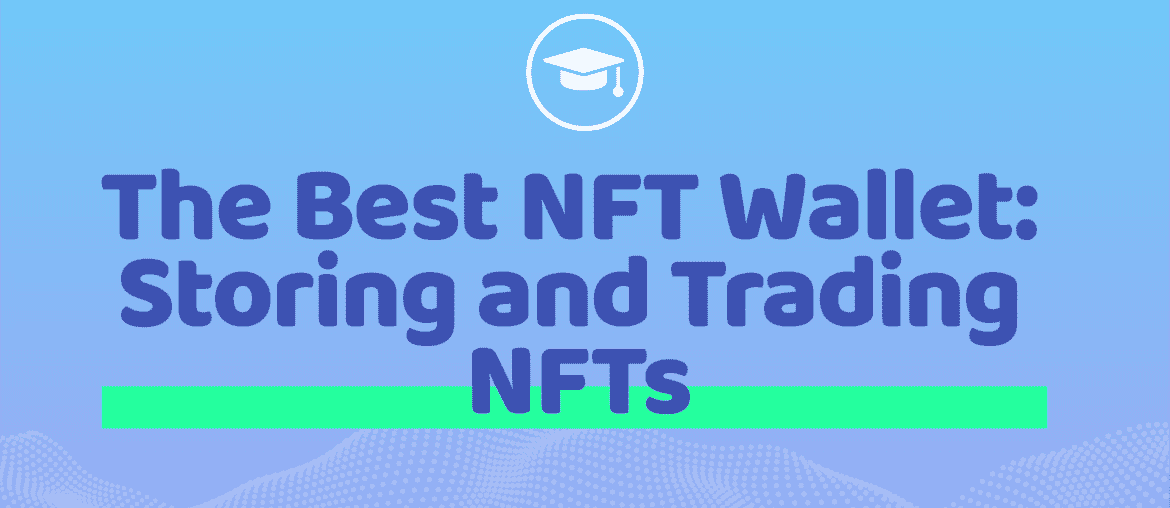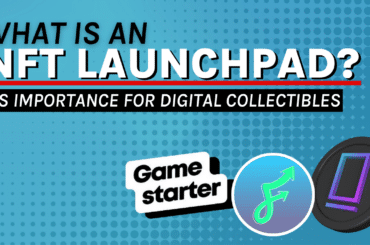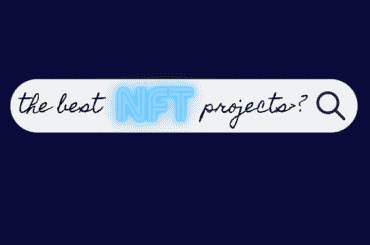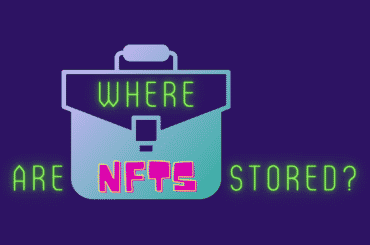If you are aiming to dive into the world of NFTs, one of the very first steps you will need to take is finding an NFT Wallet. Also known as a digital wallet, the device has a rather misleading name. Instead of a wallet where you store your money and credit cards, it serves also like a digital key chain, holding your passcodes and private keys.
There are a wide variety of digital wallets on the market, and some serve NFTs more carefully than others. To first understand your options, it is important to understand the different choices you have before you.
Table of Contents
Options in NFT Wallets
An NFT wallet in its simplest terms is a device that will store your private passcodes and keys, as well as your NFTs. This item can be a piece of hardware, such as a removable thumb drive-like USB connection, or it can be a software program stored in a laptop or desktop, or even mobile device such as an iPhone or Android smart phone.
All Wallets Are Not Created Equal
There is an important factor to consider right off the bat. If your goal is to store NFTs, understand that not all digital wallets are NFT compatible. Some are focused strictly on cryptocurrency wallet function, and do not allow for NFT storage.
Consider Your Needs
Everyone has a unique and individual situation when it comes to the cryptocurrency and NFT marketplace. These needs are as varied as the NFTs you find online. To begin your search for an NFT wallet, it is ideal to first think of what your own personal circumstances, desires, and goals are when it comes to owning a digital wallet.
Take a Look in the Mirror
This may sound like an unusual place to start a search for a crypto wallet, but it is an important step. What do you individually need your wallet to do with and for your NFTs?
For instance, you also can consider things like how responsible you are, how much you trust your own abilities, and what you think of your own home security. You may want to weigh how much you travel, for work or pleasure.
You also should decide where your trust truly lies. Do you find yourself to be the best keeper of secrets? Or do you wish someone would just take it all of your plate for you?
What Features Does Your NFT Wallet Need
Once you know what you think about your own abilities and needs, it is important to weigh the features you want your wallet to embrace. Far beyond the ability to store NFTs as a baseline decision-making consideration, there are a plethora of options on the table.
Are you a proponent of the decentralized blockchain technology? Do you live and die by the focus to remove a central authority?
Or do you prefer there to be a higher power watching over your accounts for you? Do you wish for there to be access remotely, or will you only be tracking your transactions from home?
All of these considered features will fall into a list narrowing your search greatly, and helping you to find the perfect wallet for your individual needs.
So Many Variables
There are a large number of differences between even the best NFT wallet names out there. The right wallet for you, may not be the best new wallet for your neighbor. Some features to breakdown in your consideration should also include:
- Available features
- Price point to start
- Fees for transactions, such as gas fees
- Compatibility with NFT marketplaces
- Security features
- Track record and length of history
This is just a start of the many features you may want to compare before making a final selection. Now, let’s dive into the NFT wallet type that best suits your needs.
Types of Digital Wallets
Just like options in the NFT marketplaces and platforms you use, you also have plenty of options when it comes to selecting a digital wallet. Crypto wallets (a term used rather interchangeably with digital wallets or blockchain wallets) are what keep your NFTs (and any other forms of cryptocurrency) safe. Picking the right method for you is as personalized as your goals for entering the marketplace.
To start, you will want to select the style of digital wallet that suits your needs best. There are three main types of digital wallets: a hardware wallet, a software wallet, and a paper wallet.
Hardware Wallets
Much like a removable hard drive for extra storage space, hardware wallets are a device that is connected to your computer, typically via a USB cord. This device is able to be removed, making sure it is not out there floating on the worldwide web.
Those seeking to use Hardware Wallets should note, however, using NFTs with hardware wallets often requires the use of a third-party interface. They are often not directly compatible with NFTs themselves.
For example, your hardware wallet can store your passcodes, but it would only then allow you to log into a software wallet in order to access and store your NFTs. While you can enjoy the benefits of a cold storage (not living on the Internet) using the hardware for your private keys, but will also need to couple the use with a software wallet.
Some key components of the hardware wallet includes:
- Independent responsibility for keeping the device secure
- Remember your log-ins to the hardware wallet itself
- Having mobility, however somewhat limited by requiring the device to be in-hand
Software Wallets
Another option for keeping your NFTs safe within a digital wallet is to select only a software wallet. These software choices come in three main forms: web-based, desktop, and mobile. Each has its own positives and negatives, depending on your personal needs.
These portable devices are an ideal option for the on-the-go traveler. With so much of our world happening each day on these objects, it is not shocking many want to keep their crypto handy, as well.
A tablet or phone are almost always at your side, making for quick access to your crypto wallet, not matter where you are. Given the highly volatile nature of the crypto and NFT marketplaces, it can be wise to have immediate access at all times to your digital assets.
Mobile wallets can also sometimes provide the benefit of having both hot and cold storage options. This brings that “best of both worlds” feature to many that desire choice when it comes to their crypto.
Paper Wallets
While this concept may sound strange at first, many people opt to go “old school” when it comes to storing their personal and private keys. Some hear “paper wallet” and consider a high tech option they’ve never yet heard about in the world of crypto.
But, like its software counterparts, this too is just a simply named option: a paper wallet is just that, a physical piece of paper. Whatever type of paper (a notebook, a journal, a scrap, or even a cocktail napkin), some prefer to have their personal information stored the old fashioned way.
These wallets offer:
- Complete self-sufficient security not relying on the net in any way
- An ability to combine its use in conjunction with other wallets
- Requirement to keep your keys secure is completely on you
Much like a hardware wallet, however, the paper wallet concept will only work with NFTs in conjunction with another wallet method. For example, the paper can store your private keys, but cannot store your NFTs directly.
For example, if you use a mobile wallet to store your NFTs, you can use your paper wallet to store the passcodes to enter that mobile wallet. It won’t be the space for your NFTs (a digital file), but will be the method in which you access your NFTs.
NFT Wallet Companies
Attempting to compare one NFT wallet to another NFT wallet can be mind numbing and confusing. If you have narrowed down your search for the best NFT wallets with by mastering the steps above, we suggest you shift your focus to the brands and names available out there on the worldwide web.
Marketplace Compatibility
If you are unsure which wallet to go with, you want to see be sure you have a wallet compatible with the exchange or marketplace you wish to work with long-term. While many wallets are used across many interfaces, not all NFT wallet providers work with all NFT marketplaces.
A solid rule of thumb is that, the more popular the NFT marketplace, the more brands of wallet that supports it will exist. In other words, if you aim to work in Bitcoin cryptocurrency, for example, you will find hundreds of compatible wallets.
However, if your new start-up just started yesterday, there is a chance only the most popular NFT wallets will be available, and even that list may be quite limited.
Biggest Names in the NFT Wallet Game
Comparing one popular wallet to another is nearly impossible. It isn’t comparing apples and oranges so much as apples and Volkswagens. There are countless features you want to weigh before making your choice.
That said, many in the market of popular wallets trust where the people have placed their faith. And, if you strictly want to review the masses (i.e. the most popular wallets out there for buying and selling NFTs), those big names include:
- Ledger
- MetaMask
- Coinbase Wallet
- Exodus
- Mycelium
- Electrum
- Trezor
When it comes to the ability to store NFTs, some things may seem similar, but clearly there are reasons other wallets are dubbed the “best NFT wallet” on the market. That choice is a very subjective one, considering the options you need to weigh for your individual needs.
To answer the question, what is the best crypto wallet, there can’t just be one single answer, because there isn’t just one single need. Why you want an NFT wallet and what you want your NFT wallet to do, is not the same as what I may want to do.
This also helps us to understand why there are so many NFT wallets out there. The choices are nearly endless because the needs for them are, too.
Consider Your Experience
The wallet is not the only thing that makes the NFT wallet and its exchange platforms operate. You, the human behind the technology, also needs to consider abilities. While looking in the mirror when weighing types of wallets is important, it is also crucial that you review this information again when opting for the company to trust.
For example, if you have narrowed down that the hardware wallet is for you, and you have confirmed that the NFT marketplaces you want to use are compatible with that said brand, you should also consider your experience, tech know-how, and how you will use the hardware NFT wallet.
Let’s continue our example and say that you’ve noticed Ledger is a brand commonly accepted in most major marketplaces. This hardware wallet has two unique models, the Ledger Nano S and the Ledger Nano X.
Besides the starting price point, these two designs are just a sampling of the several hardware wallets on the market. But, if you’ve taken the time to narrow down type and brand, you only have a few simple questions to workout at this point.
In our example, the Nano S has the ability to secure and manage up to three applications at the same time. However, the Nano X has the ability to do so with 100 or more. This is a major difference, even among the same branded devices.
Knowing what your needs are before choosing an NFT wallet will help you greatly in the process.
The ‘Best’ NFT Wallets Today
Let’s take a deeper dive into the top names in NFT wallets and the brands that top the marketplace, and what makes them so successful in the NFT wallet game today.
- Metamask
Arguably one of the best NFT wallets on the marketplace today is the fox-faced icon known as Metamask. This wallet has an automatic sync from desktop to mobile versions, giving a unique user interface many enjoy. Having a mobile application for your use allows you to be on the go is a must-have in this fluctuating marketplace.
If you need to exchange crypto currency, Metamask has a built-in swap feature. You can also set limits on how to much you are willing to pay for gas fees, which can save you money.
- Coinbase Wallet
While it does not offer the same feature for its cryptocurrency, storing NFTs in a Coinbase wallet allows users to stay in total control of their assets. However, this Ethereum wallet is only used on Ethereum-based NFTs.
Users enjoy the wallet because of its longstanding name in the business, lending trust and reliability, which are crucial and often hard to find features in the NFT business.
- Enjin Wallet
The Enjin wallet is well known for its mobile use and its ability to interact with the ERC-1155 tokens. While some users appreciate the mobility, others are concerned that it is the only way to use this brand of wallet.
Another pro is the interface opens with fingerprint access, adding a layer of security that many desire. If you aim to store NFT tokens in a secure and mobile way, this is a wallet to consider.
- Trust Wallet
The Trust Wallet is another mobile-only wallet. It is operated by Binance smart chain, and is well known for the ability to work across different blockchain technology sources.
The wallet allows users to buy NFTs, as well as sell, store, and exchange them. With more than 10 million users, it is clear many enjoy the fact, too, that Trust Wallet does not store or request personal information.
Trust Wallet support NFTs in both iOS and Android operating systems. For NFT transactions and buying NFTs a basic credit can be used in Trust Wallet, making an easy purchase experience.
- Math Wallet
One of the best wallets for minting NFTs is the Math Wallet. This wallet also offers cross-chain abilities, too, with compatibility with over 70 blockchains. If you are seeking the versatility of the NFT wallets available, users enjoy the Math Wallet as it offers a mobile, web, and desktop version.
The Math Wallet also supports its own utility token. Another feature making Math Wallet one of the best NFT wallets is also its ability to work around all aspects of the NFT marketplaces, not to mention offer you support at each stage.
Math Wallet can be useful for new users, too, since there is a step-by-step support system in place, offering assistance where needed. This type of interface makes it easy to understand the sometimes complex aspects of the industry.
Others enjoy the use as it is backed by large investors, which provides a piece of mind for some investing in the NFT marketplace.
- AlphaWallet
Like the Coinbase wallet, the AlphaWallet supports only a mobile application and is only on the Ehtereum blockchain. It is also known for its native blockchain game and NFT focus.
The AlphaWallet also allows you to make NFT transfers from other wallets without entering your private codes. When making a swap amongst your wallets, it makes the AlphaWallet a strong choice.
- Kukai Wallet
The Kakai Wallet is a choice for those seeking no third-party interference. There are also no hidden gas fees in this application.
The Kukai Wallet works in conjunction with the popular Ledger brand of hardware wallets, giving users the option of the combo of security. It is an open source wallet that supports the buying, selling, trading, and storage of your NFTs.
Making The Choice for You
The best NFT wallet for you may not be the best for all. Consider the factors that are important to you, not to mention your style of NFT transaction. Do you plan on interacting with multiple marketplaces? Do you plan on using a mobile-only version? These are considerations you will need to weigh before making your selection.
Your Unique Needs
When considering the massive amount of choices you have out there on in NFT wallets, just remember, there are plenty of fish in the sea. In other words, if one wallet does not seem to work well for you, try another.
If At First You Don’t Succeed
Outside of the hardware versions, most wallets are free to start. It doesn’t hurt to hunt around the marketplace simply by “trying on” the best NFT wallets out there. You don’t have to be afraid to take it for a test drive and see how she rides.
Some of the top NFT wallets may not have the features you long for in your NFT transfers. Other wallets may just not jive with your lifestyle. Still other wallets can have compatibility issues, especially as the world of cryptocurrency platforms continues to grow and expand.
You aren’t stuck with your choice for life. NFT transactions come and go, and so too will your choices in other NFT marketplaces. You don’t have to keep struggling if one wallet does not meet your needs.
The Answer
At the end of the day, we can’t say that there is THE answer to this ultimate question. What NFT wallet is best for you depends largely on your needs, abilities, experiences, and desires. No two snowflakes are said to be exactly alike, and neither are NFT wallets.
For now, the marketplace is your “oyster,” and you have a vast sea of NFT wallets to choose from out there. Sometimes it is the way you search that makes the solution to the question obvious.
Start with solid research, from trusted sources, and answer your questions internally before you seek the options before you. And above all, happy wallet shopping!
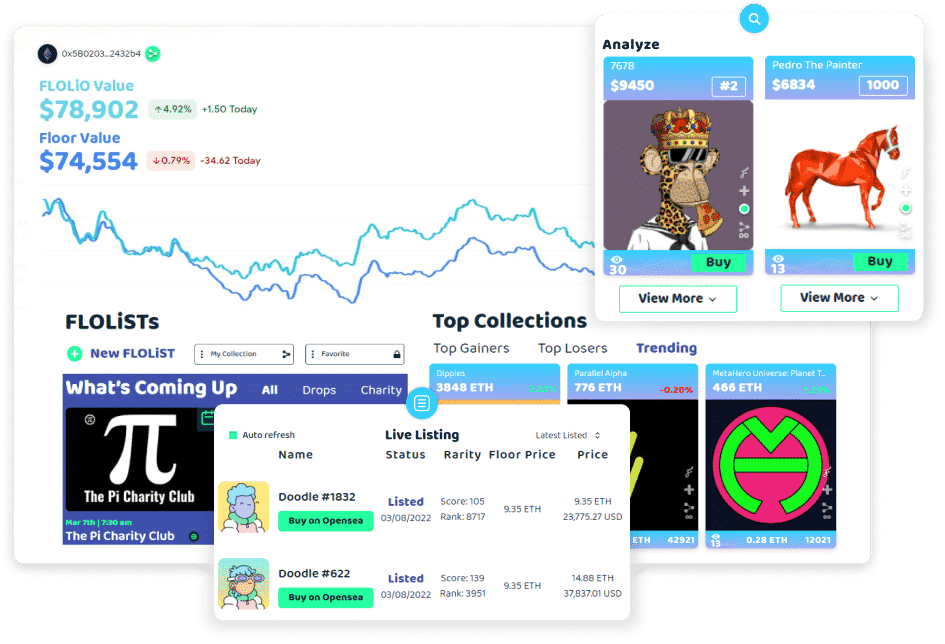
Wisdom within Web3
One place to manage all your digital assets
We combine data across marketplaces, metaverses, games & chains enabling communities to continue expanding the ecosystem.

